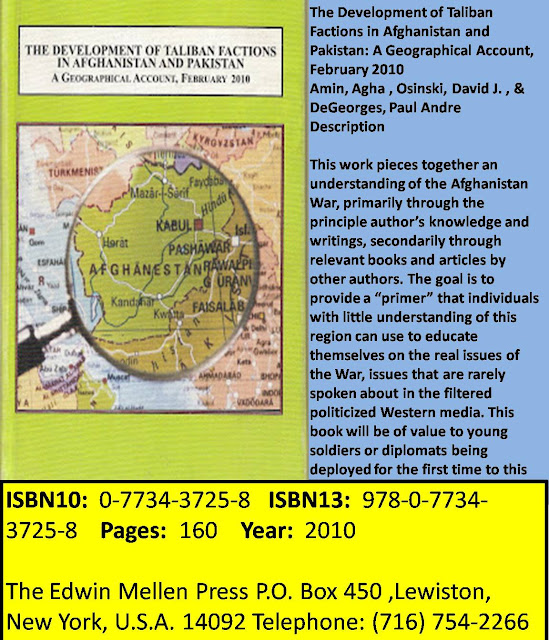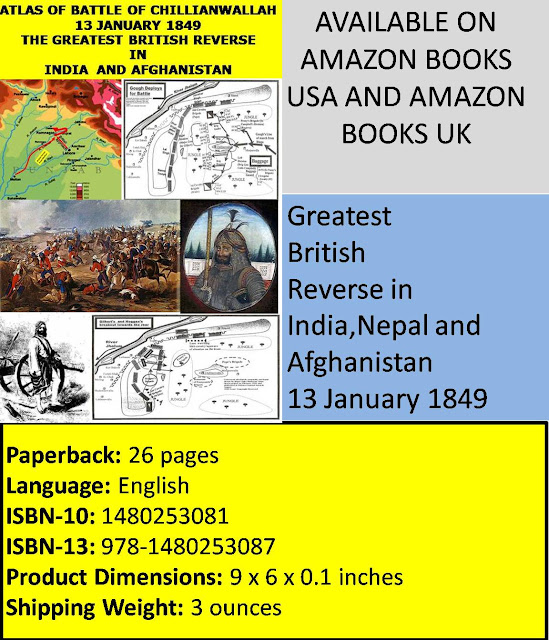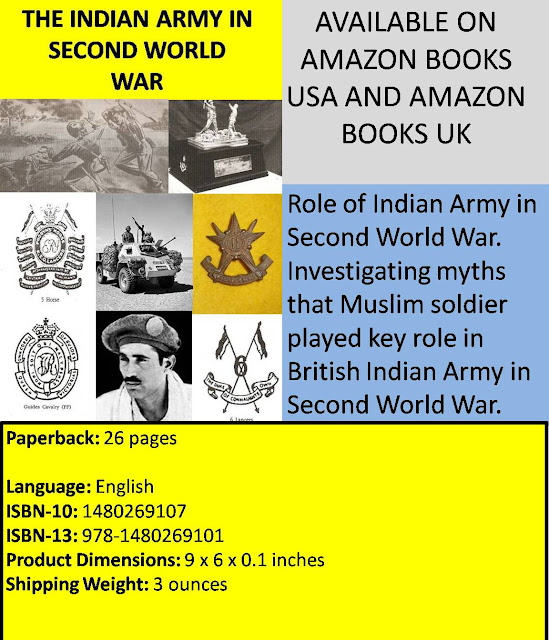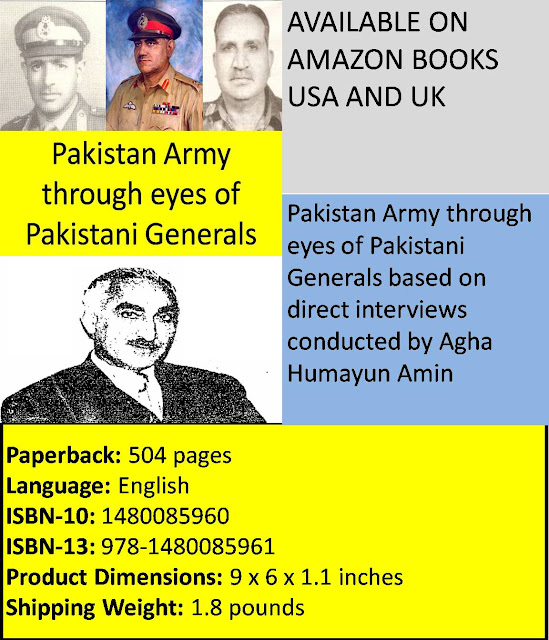"Using force to stop slaughter is lawful. The duty to stop the mass murder of innocents, as best we can, has crystallized to make the use of force by NATO not merely 'legitimate' but lawful." Geoffrey Robertson QC, a member of the UN's justice council David Cameron, now heading a coalition government of a bankrupt United Kingdom, along with some elements in France and elsewhere in Europe is raring to go to war on Libya in the 21century version of Whiteman's burden. Still drunk with the colonial power hangover, Cameron is an apt successor of Tony Blair, who told lies before the2003 invasion of Iraq and joined George Bush in spite of the original legal advice that it was illegal. Though accused of various crimes he is still roaming around relatively free. Day of Reckoning Josh Gerstein wrote in 'Politico' on 22 February, 2011 that the US Justice Department has quietly dropped its legal representation of more than a dozen Bush-era Pentagon and administration officials - including former Defense Secretary Donald Rumsfeld and aide Paul Wolfowitz - in a lawsuit by José Padilla, who spent years behind bars without charges in conditions his lawyers compare to torture. Ray McGovern, former CIA officer and now a member of the Steering Group of Veteran Intelligence Professionals for Sanity (VIPS) wrote in Information Clearing House on 19 February 2011 that former president George Bush abruptly canceled his scheduled appearance that week in Geneva to avoid the risk of arrest on a torture charge. Libya and the Return of Humanitarian Imperialism Writing in Counterpunch.org, Jean Brichmont says that "The whole gang is back' which includes the parties of the European Left and other assorted groups, Bernard-Henry Lévy and Bernard Kouchner, calling for some sort of "humanitarian intervention against the Libyan tyrant." It reminds me of the breakup of Yugoslavia and the Kosovo war to stop a nonexistent genocide. Since then US led West after the illegal invasion and brutal occupation of Iraq, has resulted in over 1.4 million Iraqis deaths and the destruction of the country. These European leaders of humanitarian intervention in Libya do not talk of genocide in Iraq. Was not the Afghan war to protect women (go and check their situation now), and the Iraq war to protect the Kurds and find weapons of mass destruction (none were found). Was not even Hitler "protecting minorities" in Czechoslovakia and Poland? scoffs Brichmont. (At New Delhi's National Defense College Seminar last year on the - 'Role of Force in Strategic Affairs', Lawrence Freedman, a member of the Chilcot Enquiry, while presiding at a session claimed that the Iraq invasion was to quickly make a regime change and come out. He even contested my claim, based on my over 50 articles (2002 to 2010) on the Iraq war that both former US deputy defense secretary Paul Wolfowitz and former Fed reserve chief Alan Greenspan had proclaimed that the invasion was for Iraq's oil. Wikileaks has confirmed that the Chiclot Enquiry is but a whitewash to help save Tony Blair's skin!) Likely Ramifications of Imposing a No-fly Zone over Libya Mike Lind writes in Salon, "The implication [of McCain, Lieberman, Kerry et al.] is that the enforcement of "no-fly zones," by the U.S. alone or with NATO allies, would be a moderate, reasonable measure short of war, like a trade embargo. In reality, declaring and enforcing a no-fly zone in Libya would be a radical act of war. It would require the U.S. not only to shoot down Libyan military aircraft but also to bomb Libya in order to destroy anti-aircraft defenses. Under any legal theory, bombing a foreign government's territory and blasting its air force out of the sky is war. "Could America's war in Libya remain limited? The hawks glibly promise that the U.S. could limit its participation in the Libyan civil war to airstrikes, leaving the fighting to Libyan rebels. "These assurances by the hawks are ominously familiar." Lind then traces us back through the Balkans, Afghanistan and Iraq, arguing that each of these turned into wars of larger scale than intended (Afghanistan and Iraq were supposed to be quick and easy, remember?).
"Stay the Course", he concludes; "The lesson of these three wars is that the rhetoric of lift-and-strike is a gateway drug that leads to all-out American military invasion and occupation. Once the U.S. has committed itself to using limited military force to depose a foreign regime, the pressure to "stay the course" becomes irresistible. If lift-and-strike were to fail in Libya, the same neo-con hawks who promised that it would succeed would not apologize for their mistake. Instead, they would up the ante. They would call for escalating American involvement further, because America's prestige would now be on the line. They would denounce any alternative as a cowardly policy of "cut and run." And as soon as any American soldiers died in Libya, the hawks would claim that we would be betraying their memory, unless we conquered Libya and occupied it for years or decades until it became a functioning, pro-American democracy. "Those who are promoting an American war against Gaddafi must answer the question: "You and whose army?" The term "jingoism" comes from a Victorian British music-hall ditty: "We don't want to fight but by Jingo if we do, We've got the ships, we've got theme, we've got the money too." Unfortunately for 21st-century America's jingoes, we haven't got the ships, the men or the money."(As for the men, late decorated US Marine Col Murtha had said in 2006 that the US army was broken in Iraq.) 'No-fly zone' is a Euphemism for War Similar views are expressed by Simon Jenkins in the Guardian of 9 March; "We'd be mad to try it." "Cameron's urge to dust himself in military glory may be strong, but he should not interfere in the Libyan rebels' cause. The craving of politicians to dust themselves in military glory is as old as the hills, embedded in leadership psychosis. However daft a war may be, however illegal, however unwinnable, politicians seem helpless before the sound of trumpets and drums. Considerations of prudence, economy or overstretch are nothing. That Britain has been fighting and not winning two wars already in Muslim countries seems to teach nothing in Libya. Jingoism never dies. "There is no point is repeating that Libya is not our country or our business. It was always going to be bloody one day. I find it incredible that Labour ministers, as they simpered in Gaddafi's presence, could have thought he would lie down like a lamb should his people rise against him. But unless we redefine words, he is not committing genocide and his brutality is hardly exceptional. If the rebels win it should be their victory, emerging from a new balance of power inside Libya. If they fail, they must fight another day. There is no good reason for us to intervene. However embattled they feel, Obama and Cameron should find other paths to glory." Cameron outlined his conversation with Obama on BBC1, "We have got to prepare for what we might have to do if he [Gaddafi] goes on brutalizing his own people," he said. "I had a phone call with President Obama this afternoon to talk about the planning we have to do in case this continues and in case he does terrible things to his own people. I don't think we can stand aside and let that happen." A Downing Street spokesman said: "The prime minister and the president agreed to press forward with planning, including at NATO on the full spectrum of possible responses, including surveillance, humanitarian assistance, enforcement of the arms embargo , and a no-fly zone. They committed to close co-ordination on next steps." US Secretaries of Defense and State oppose 'No Fly Zone' But only last week Robert Gates, the US defense secretary, criticized "loose talk" over a no-fly zone and Secretary of State Hillary Clinton cautioned that a no-fly zone would need clear approval by the UN security council and warned of the dangers if the West took charge of any military operation Clinton told Sky News: "We think it's important that the United Nations make this decision, not the United States, and so far the United Nations has not done that. "I think it's very important that this not be a US-led effort, because this comes from the people of Libya themselves, this doesn't come from the outside, this doesn't come from, you know, some western power, or some Gulf country saying, 'this is what you should do, thesis how you should live'." But British and French diplomats at the UN headquarters in New York have completed a draft resolution authorizing the creation of a no-fly zone which could be put before the security council within hours if aerial bombing by pro-Gaddafi forces causes mass civilian casualties. GCC and OIC Oppose Intervention The Gulf Co-operation Council, the Organisation of the Islamic Conference and the secretary general of the Arab League have called for the protection of Libyan civilians while rejecting the intervention of western ground troops. Turkey, the most reluctant NATO member state, has relaxed its opposition and allowed contingency planning to go ahead. Last week Turkish PM Recep Erdogan had opposed any intervention and described it unacceptable. Both Moscow and China are opposed to Western proposal for a 'No-Fly Zone.' Even India, now member of UNSC for two years opposes it. "As of now we are not in favor of a no-fly zone. We are opposed to use of force," Indian foreign secretary Nirupama Rao told The Hindu newspaper." Among BRIC (Brazil, Russia, India, and China) countries, questions have been raised and reservations expressed," she said. The decision to step up air and sea monitoring was taken on Monday by NATO Council at a meeting of ambassadors from NATO's 28 member states. Guardian reported that the West was preparing to act to protect Libyan citizens from Gaddafi forces. Western Intervention for Libya and its Oil is On Prof Michel Chossudovsky wrote in 'Global Research' that "Operation Libya" and "the Battle for Oil" is already on. The US and NATO are supporting an armed insurrection in Eastern Libya, with a view to justifying a "humanitarian intervention". "This is not a non-violent protest movement as in Egypt and Tunisia. Conditions in Libya are fundamentally different. The armed insurgency in Eastern Libya is directly supported by foreign powers. The insurrection in Benghazi immediately hoisted the red, black and green banner with the crescent and star: the flag of the monarchy of King Idris, which symbolized the rule of the former colonial powers. (King Idris was overthrown by Col Gaddafi in 1969 .He was then a Captain but like his idol Col Abdul Gamal Nasser he did not promote himself beyond the rank of a Colonel ) "US and NATO military advisers and special forces are already on the ground. The operation was planned to coincide with the protest movement in neighboring Arab countries. Public opinion was led to believe that the protest movement had spread spontaneously from Tunisia and Egypt to Libya. "The real objective of "Operation Libya" is not to establish democracy but to take possession of Libya's oil reserves, destabilize the National Oil Corporation(NOC) and eventually privatize the country's oil industry, namely transfer the control and ownership of Libya's oil wealth into foreign hands. The National Oil Corporation (NOC) is ranked 25 among the world's Top 100 Oil Companies. Libya is among the World's largest oil economies with approximately 3.5% of global oil reserves, more than twice those of the US. "The planned invasion of Libya, which is already underway is part of the broader "Battle for Oil". Close to 80 percent of Libya's oil reserves are located in the Sirte Gulf basin of Eastern Libya. The strategic assumptions behind "Operation Libya" are reminiscent of previous US-NATO military undertakings in Yugoslavia and Iraq. "In Yugoslavia, US-NATO forces triggered a civil war. The objective was to create political and ethnic divisions, which eventually led to the breakup of an entire country. This objective was achieved through the covert funding and training of armed paramilitary armies, first in Bosnia (Bosnian Muslim Army, 1991-95) and subsequently in Kosovo (Kosovo Liberation Army (KLA), 1998-1999). In both Kosovo and Bosnia, media disinformation (including outright lies and fabrications) were used to support US-EU claims that the Belgrade government had committed atrocities, thereby justifying a military intervention on humanitarian grounds. (Kosovo now has a US military base called Bond steel of nearly one thousand acres, also used by NATO). Ironically, "Operation Yugoslavia" is now on the lips of US foreign policymakers:=. Senator Lieberman has likened the situation in Libya to the events in the Balkans in the 1990s when he said the U.S. "intervened to stop a genocide against Bosnians. And the first we did was to provide them the arms to defend themselves. That's what I think we ought to do in Libya" "The strategic scenario would be to push towards the formation and recognition of an interim government of the secessionist province, with a view to eventually breaking up the country. "This option is already underway. The invasion of Libya has already commenced. Hundreds of US, British and French military advisers have arrived in Cyrenaica, Libya's eastern breakaway province,... The advisers, including intelligence officers, were dropped from warships and missile boats at the coastal towns of Benghazi and Tobruk" (DEBKA file, US military advisers in Cyrenaica, February 25, 2011) "US and allied special forces are on the ground in Eastern Libya, providing covert support to the rebels This was recognized when British SAS Special Forces commandos were arrested in the Benghazi region. They were acting as military advisers to opposition forces. British Agents Caught in Eastern Libya with their Pants Down "Eight British special forces commandos, on a secret mission to put British diplomats in touch with leading opponents of Col Muammar Gadaffi in Libya, ended in humiliation after they were held by rebel forces in eastern Libya (The Sunday Times report). The men, armed but in plain clothes, claimed they were there to check the opposition's needs and offer help." (Indian Express, March 6, 2011,) The SAS forces were arrested while escorting a British "diplomatic mission" who entered the country illegally (no doubt from a British warship) for discussions with leaders of the rebellion. The British foreign office has acknowledged that "a small British diplomatic team [had been] sent to eastern Libya to initiate contacts with the rebel-backed opposition. Ironically, the reports not only confirm Western military intervention (including several hundred special forces), they also acknowledge that the rebellion was firmly opposed tithe illegal presence of foreign troops on Libyan soil: "The SAS's intervention angered Libyan opposition figures who ordered the soldiers to be locked up on a military base. Gadaffi's opponents fear he could use any evidence of western military interference to rally patriotic support for his regime." The captured British "diplomat" with seven special forces soldiers was a member of British Intelligence, an MI6 agent on a "secret mission". "Confirmed by US NATO statements, weapons are being supplied to opposition forces. There are indications, although no clear evidence so far, that weapons were delivered to the insurgents prior to the onslaught of the rebellion. In all likelihood, USNATO military and intelligence advisers were also on the ground prior to the insurgency. This was the pattern applied in Kosovo: special forces supporting and training the Kosovo Liberation Army (KLA) in the months prior to the 1999 bombing campaign and invasion of Yugoslavia." "In Washington and London, talk of military intervention on the side of the Libyan opposition was muted by the realization that field intelligence on both sides of the Libyan conflict was too sketchy to serve as a basis for decision-making. But The opposition movement is firmly divided regarding the issue of foreign intervention. The division is between the grassroots movement on the one hand and the US supported "leaders" of the armed insurrection who favor foreign military intervention on "humanitarian grounds". The majority of the Libyan population, both the supporters and opponents of the regime, are firmly opposed to any form of outside intervention. Extremist Elements in Eastern Libya When Col Gaddafi said that the opposition to him also consists of Al Qaeda and other fundamentalists , he was laughed off by western leaders and its subservient media. But leaked diplomatic cables obtained by the Wikileaks website and passed to The Daily Telegraph disclose that eastern Libya could be under extremists' intent on overthrowing Colonel Gaddafi's regime. The Daily Telegraph of 7 March reported that former jihadi fighters who underwent "religious and ideological training" in Afghanistan, Lebanon and the West Bank in the 1980s have returned to eastern towns in Libya such as Benghazi and Derna to propagate their Islamist beliefs. One February 2008 US embassy cable to Washington reported a conversation with a local businessman who described the increasingly incendiary rhetoric at backstreet mosques in Derna, where coded talk of "martyrdom operations" had become commonplace. "By contrast with mosques in Tripoli and elsewhere in the country, where references to jihad are extremely rare, in Benghazi and Derna they are fairly frequent subjects, "it added. The unemployed, disfranchised young men of eastern Libya 'have nothing to lose' and were 'willing to sacrifice themselves' for something greater than themselves by engaging in extremism in the name of religion. Their lives mean nothing and they know it, so they seek to give meaning to their existence through their deaths'." "not everyone likes the bearded ones" (a reference to conservative imams), "it's jihad – it's our duty, and you're talking about people who don't have much else to be proud of", said a resident. Another confidential cable to Washington from the US embassy in Tripoli in June 2008 described Derna as a "wellspring" of insurgent fighters and suicide bombers in Iraq. Further Confusion Writing on Race and Arab Nationalism, BAR executive editor Glen Ford says that US corporate media apart from spinning facts and telling lies understand little of the confused situation in Libya. The rebels claim that black mercenaries from Sahara below are fighting for Gaddafi. It may be partly true but more than a million blacks from Libya's adjacent states , who are working in Libya , many for foreign firms are being treated and hounded like Blacks were in USA. "The testimony of black African victims is most disturbing. "We were being attacked by local people who said that we were mercenaries killing people. Let me say that they did not want to see black people," 60-year-old Julius Kiluu, an African building supervisor, told Reuters. Even in Tripoli, where the regime is not in full control of neighborhoods, Somalis told they were "being hunted on suspicion of being mercenaries" and "feel trapped and frightened to go out." Ethiopians told of being "dragged from their apartments, beaten up and showed to the world as mercenaries. "Ethiopian News and Opinions reported that "Muammar Gaddafi haters are taking revenge on black Africans for money Gaddafi threw for many African dictators. The mob attacked and killed many Africans including Ethiopians for being only black." America's Secret Plan to Arm Libya's Rebels UK's Independent's well respected Middle East Correspondent Robert Fisk wrote on 7 March that Obama has requested Saudi Arabia to airlift weapons into Benghazi. Riyadh has so far not responded to Washington's highly classified request. But this is in line with Washington-Riyadh military co-operation in the past. The Saudis were deeply involved in the Contra scandal during the Reagan administration. It was this cooperation in 1980s along with many other western nations and Muslim countries against USSR that permanent nurseries were created in Pak-Af for training of terrorist cadres Their daily terrorist acts hang over the region, including India and are now chewing up the entrails of the Pakistan state itself. But the Saudi Kingdom itself had to face up to demonstrations in oil rich north east, where its Shia population is concentrated. It adjoins Shia south Iraq and Shia majority Bahrain, the latter under daily sit ins and demonstrations with many deaths. On Friday, 11 February, Riyadh was to face , a "day of rage" from its 10 per cent Shia Muslim community. Of course Riyadh has banned all demonstrations and fatwas were issued by Sunni Clerics. The continued agitation for majority rule in Bahrain and strikes in Saudi Arabia could be the thin edge of the wedge which could spark turmoil in the Kingdom, even beginning its unraveling, which would be a fatal blow to US dollar and US economic hegemony based on it. Interesting times (as the Chinese would say) are ahead for the region and the world. Libyan State-a Brief History The current official title of the state is the Great Socialist People's Libyan Arab Jamahiriya. Rock paintings and carvings at Wadi Mathendoud and the mountainous region of Jebel are the best sources of information about prehistoric Libya, and the pastoralist culture there. The paintings reveal that the Libyan Sahara contained rivers, grassy plateaus and an abundance of wildlife such as giraffes, elephants and crocodiles. There are underground lakes of water, now being exploited. (The lions in Greek and Romans stories like Androcles and the Lion and during gladiators contests were probably brought over from the forests of Libya). Libya was part of, Carthagian, Persian, Roman (with magnificent Roman ruins like those of Leptis Magna) and Byzantine empires. In 7 century, the Arabs from the deserts of Arabia under the banner of new faith Islam, conquered Libya and it remained apart of Umayyad and Abbassid empires. Later the Fatimids brought about the migration of as many as 200,000 families from two Bedouin tribes, the Banu Sulaym and Banu Hilal to north Africa—this act completely altered the fabric of Libya and cemented the cultural and linguistic Arabisation of the region. Ibn Khaldun noted that the lands ravaged by Banu Hilal invaders had become completely arid desert. Barring intermittent intervention by the Christians, Libya remained under the Arab rule and was taken over by the Ottomans in mid-16th century. Libya became an Independent Kingdom in 1952. Libya extends over 1,759,540 square kilometres (679,362 sq. miles), making it the 17th largest nation by size in the world. The main language spoken in Libya is Arabic (Libyan dialect ) by 80% of the Libyans, and Modern Standard Arabic is also the official language; the Tamazight spoken by 20% (i.e. Berber and Tuareg languages), which do not have official status, are spoken by Libyan Berbers and Tuaregs in the south beside Arabic language. Native Libyans are primarily Berbers; Arabized Berbers and Turks; ethnic "pure" Arabs, mainly tribal desert "Bedouins "; and Tuaregs. Small Hausa, and Tebu tribal groups in southern Libya are nomadic or semi-nomadic. Among foreign residents, the largest groups are citizens of other African nations, including North Africans (primarily Egyptians), and Sub-Saharan Africans. In 2011, there were also an estimated 60,000 Bangladeshis, 30,000 Chinese , 30,000 Filipinos ,18000 Indians (12,000 have been evacuated so far) among others in Libya. Libya is home to a large illegal population which numbers more than one million, mostly Egyptians and Sub-Saharan Africans. Libya has a small Italian minority. Previously, there was a visible presence of Italian settlers, but many left after independence in 1947 and many more left in 1970. Libya is a tribal society. There are about 140tribes and clans in Libya. Thirty of them are the key, one of them - Warfalla –boasts of 1 million people (out of a population of 6.2 million). Often, they bear the names of the cities they come from. Family life is important for Libyan families. Some Observations While neighbor Egypt has a big population of over 80 million, it is mostly concentrated in the valley of river Nile with an area of around 3% only of the country. Based on agriculture it has been a regulated and well organized polity almost since Pharaohnic times. Libya is a nomadic and tribal jungle and it would not be easy to control it. Even in Iraq, inspite of best US efforts the local population has not allowed oil production to even come up to Saddam Hussein era level. Any Western intervention in Libya would be like entering a wasp's nest. Another quagmire like in Iraq and Afghanistan! Western intervention will give freer hand to Tehran to fulfill its regional ambitions, which had gained by US invasion of Iraq and Afghanistan. The historic blunder of 'Operation Iraqi Freedom' has brought Shias to power in Baghdad in place of Sunnis for the first time since Ottoman days and with the ending of the Saddam Hussein regime. US led West has its hands full with unmanageable problems around Afghanistan (and Iraq ) which in the words of Prof Paul Kennedy is a Gordian Knot so vexed and complicated that it would have tested the wisdom of the greatest leaders and strategists of the past. Imagine "Augustus, William Pitt the Elder, Bismarck or George Marshall pondering over a map which detailed the lands that stretch from the Bekaa Valley to the Khyber Pass. None of them would have liked what they saw." Now add Arabs in revolt from Morocco to Saudi Arabia. What if Palestinians also revolt in Occupied Territories, for example!
| 
web.jpg)










1978.gif)

.jpg)








 Baroness Flather recalled her joyful days in Lahore as a teenager. Her closest friends were Muslims. She would go to the Imambargah and her Muslim friends were always taking part in Hindu festivals
Baroness Flather recalled her joyful days in Lahore as a teenager. Her closest friends were Muslims. She would go to the Imambargah and her Muslim friends were always taking part in Hindu festivals 



 Anonymous said...
Anonymous said...


























































 The Baloch have been going missing since the early 1970s but the dirty war against them has intensified since 2005 and not a single perpetrator has even been named
The Baloch have been going missing since the early 1970s but the dirty war against them has intensified since 2005 and not a single perpetrator has even been named 










 The role of Pakistan's military in shaping state and polity has been the subject of many scholarly works since the 1950s.
The role of Pakistan's military in shaping state and polity has been the subject of many scholarly works since the 1950s.





















